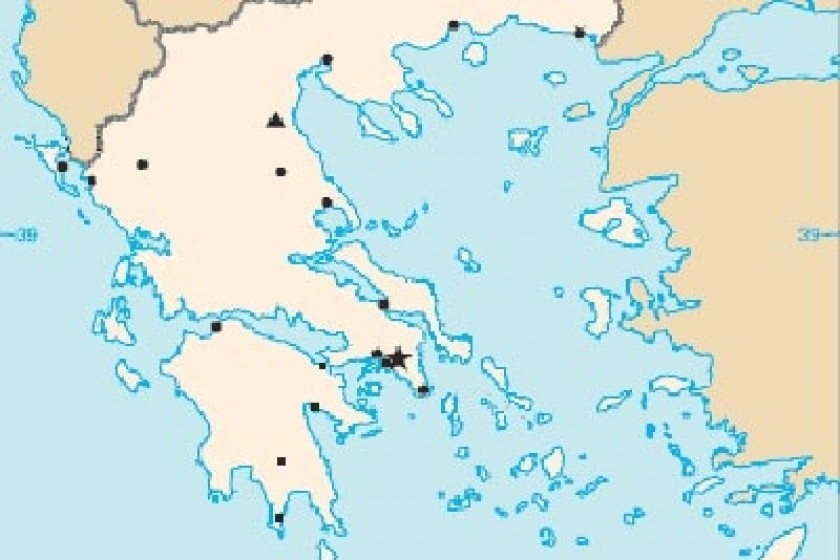
SEEMO Observes Increase in Attacks against Media in Greece
On June 17, as Greeks went to the polls for the second time in six weeks, two hand grenades were found in the courtyard of the Neo Faliro building in southern Athens housing the Kathimerini SA media group, which includes Skai television and radio. The first grenade was spotted by an employee while the second one was discovered thanks to an anonymous phone call. Neither grenade exploded.
Representatives of all mainstream political parties in Greece condemned the incident. The Vienna-based South East Europe Media Organisation (SEEMO), an affiliate of the International Press Institute (IPI), has observed a rise in physical attacks against media outlets and journalists in Greece.
SEEMO Secretary General Oliver Vujovic said: “I hope that the new government, once formed, guarantees media freedom and brings to justice all those responsible for the attacks and threats against journalists.”
Two weeks before the latest elections, on June 4, 2012, four Molotov cocktails were launched at the headquarters of the Kathimerini SA media group. Nobody was injured. One month earlier, on May 9 2012, Skai TV and radio presenter Konstantinos Bogdanos was attacked by several individuals in the Athens neighborhood of Exarchia. According to the Athens-based daily Kathimerini, the journalist said that the attackers were waiting for him. “I can say with absolute certainty that they knew I was a journalist. As they were kicking me, they made reference to Skai.”
In separate media-related developments, several journalists have been attacked in the past weeks, especially those covering anti-government rallies or attacks against immigrants. On June 6, 2012, an Israeli journalist with the Jerusalem Post, Gil Shefler, was attacked after trying to film a mob of armed, masked men beating a group of refugees and homeless people outside the National Archaeological Museum in Athens. He was treated at hospital for injuries to his head and chest.
On May 29, 2012, Greek journalist Lambros Panayiotou, who worked for Star Channel TV, witnessed six municipal policemen arresting a Somali immigrant in Athens. He filmed the scene and was allegedly hit and insulted by one of the municipal policemen who tried to snatch the mobile phone Panayiotou was using as a camera. Panayiotou identified himself as a journalist.
On April 5, 2012, Mario Lolos, the president of the Greek Photojournalists’ Union, was covering an anti-government rally on Syntagma Square, downtown Athens, when a policeman allegedly hit him several times with a baton. Lolos suffered serious head injuries and underwent surgery for a cranial fracture at Hygeia hospital.
“I am very concerned about the media situation in Greece,” said Vujovic. “Both journalists and media outlets are being attacked. I call on politicians and the police to guarantee the safety of all media, to allow them to function freely, and to bring all the aggressors of journalists to justice.”
Vujovic added: “SEEMO will be monitoring media developments in Greece and, if necessary, will send a delegation to Athens to address all the attacks against journalists in the past year.”
 Videos
Videos Photos
Photos




Write a comment